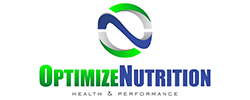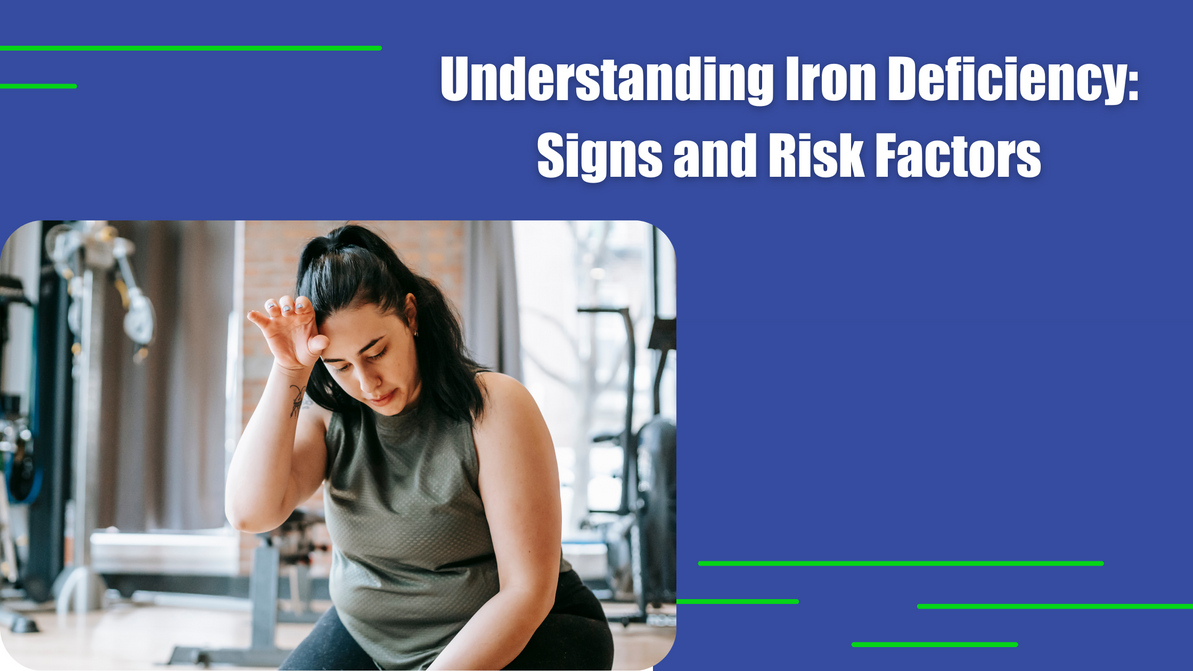Understanding Iron Deficiency: Signs and Risk Factors
Iron is an essential mineral that plays a crucial role in our overall health. It's responsible for carrying oxygen in our blood and is vital for the proper functioning of our cells and organs. Iron deficiency, or anemia, occurs when the body doesn't have enough iron to produce sufficient red blood cells. This condition can lead to a range of health issues. In this blog, we will explore the signs of iron deficiency and the risk factors associated with it.
Signs of Iron Deficiency
Fatigue and Weakness
One of the most common and early signs of iron deficiency is fatigue. If you find yourself constantly feeling tired, even after a good night's sleep, it could be a sign of low iron levels. Iron is essential for transporting oxygen to your cells, and without enough of it, you may feel weak and exhausted.
Pale Skin and Nail Beds
Iron deficiency can lead to a condition known as pallor, which results in a noticeably pale complexion. This can be particularly visible in the skin and the nail beds, which may turn pale or even become brittle.
Shortness of Breath
Since iron is responsible for transporting oxygen, a lack of iron in the body can lead to reduced oxygen levels in the blood. This can result in shortness of breath, especially during physical activity or even regular daily tasks.
Headaches and Dizziness
Insufficient iron levels can affect blood flow to the brain, leading to headaches, dizziness, and lightheadedness. If you frequently experience these symptoms, it's worth considering iron deficiency as a potential cause.
Cold Hands and Feet
Iron deficiency can cause poor circulation, which may manifest as cold extremities, such as cold hands and feet. This is due to reduced oxygen delivery to the body's peripheral areas.
Brittle Hair and Nails
Your hair and nails can also be indicators of iron deficiency. Brittle, fragile, and thinning hair, as well as brittle or spoon-shaped nails, are common signs of anemia.
Risk Factors for Iron Deficiency
Understanding the risk factors for iron deficiency can help identify individuals who may be more susceptible to this condition:
1. Diet: A diet low in iron-rich foods, such as red meat, poultry, fish, and leafy greens, can increase the risk of iron deficiency.
2. Vegetarian or Vegan Diet: People who follow vegetarian or vegan diets may have a higher risk of iron deficiency, as plant-based sources of iron are less readily absorbed by the body.
3. Blood Loss: Chronic blood loss due to heavy menstrual periods, gastrointestinal conditions, or surgeries can deplete iron stores.
4. Pregnancy: Iron needs increase during pregnancy, and if the intake doesn't match the demand, iron deficiency can occur.
5. Childhood Growth Spurts: Adolescents, especially girls, may be at higher risk due to growth spurts and the onset of menstruation.
6. Gastrointestinal Conditions: Conditions like celiac disease, Crohn's disease, or gastric bypass surgery can affect iron absorption in the gut.
7. Frequent Blood Donation: Regular blood donors may experience a temporary decrease in iron levels.
8. Family History: A family history of iron deficiency or anemia may indicate a genetic predisposition to the condition.
Conclusion
Iron deficiency is a common nutritional disorder that can have significant health implications if left untreated. Recognizing the signs and understanding the risk factors is crucial for early detection and intervention. If you suspect you may have an iron deficiency, have blood work done to assess your levels. The optimal range for adults is between 50-150. If your levels are low and you are not able to obtain a sufficient amount from food sources, consider using a high quality supplement such as New Roots Heme Iron.
Recent Posts
-
Natural Blood Thinning Supplements for Heart Health: Benefits, Uses & Safety
Cardiovascular health depends heavily on proper blood flow. When blood becomes too thick or platelet …Feb 21, 2026 -
How to Support Liver Health Naturally: Key Nutrients, Supplements & Lifestyle Tips
The liver is one of the most vital organs in the body, responsible for metabolism, digestion, hormon …Feb 09, 2026 -
Essential Nutrient Needs for Women at Every Stage of Life: Symptoms, Solutions, and Supplement Support
Why Women Have Unique Nutrient Needs Women’s nutritional requirements change significantly across li …Feb 06, 2026




